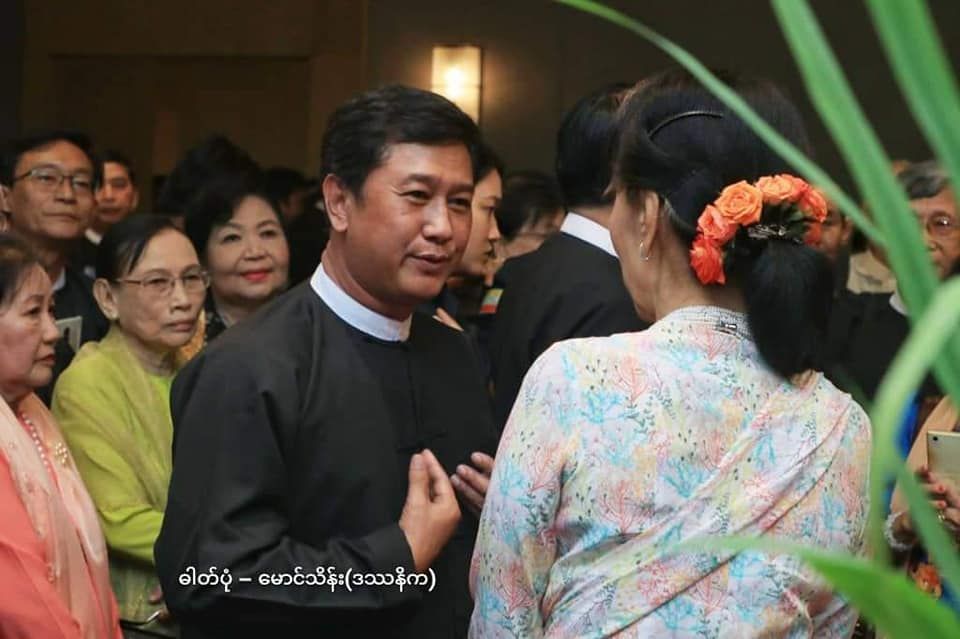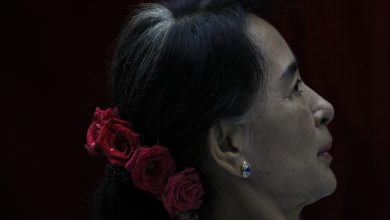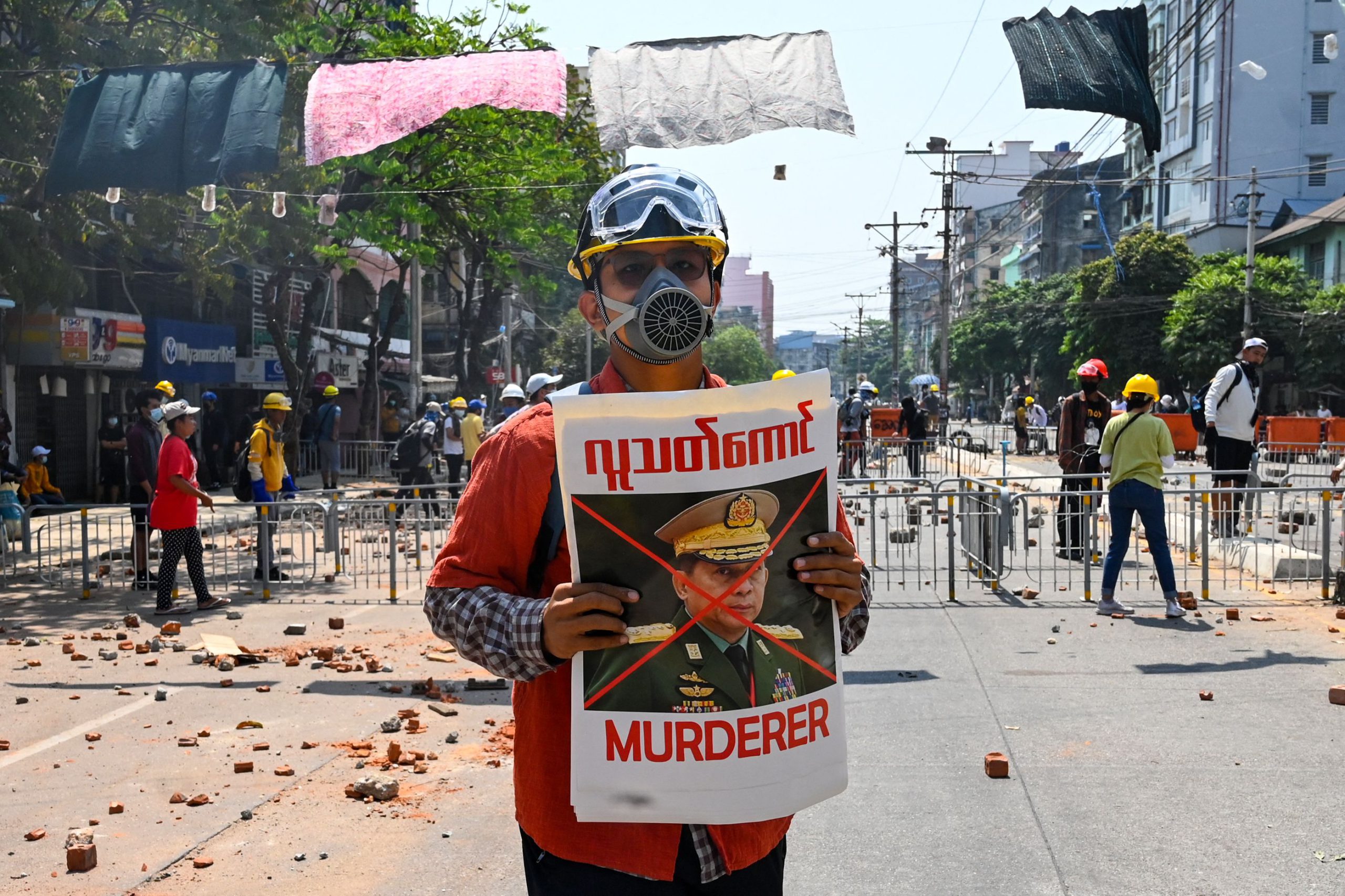
Myanmar is a nation ruled by murderers. There is no other way to describe a regime that uses snipers to shoot protesters in the head and airstrikes and ground attacks to wipe out entire villages; that tortures prisoners to death and kills at will as it rampages through resistance strongholds. This is a regime willing to spill any amount of blood to stay in power.
But even in a country that has lived under the spectre of this homicidal rage for nearly a year and a half, many were stunned by the news on Monday that four political prisoners, including veteran activist Ko Jimmy and former MP Phyo Zayar Thaw, had been executed inside Yangon’s Insein Prison.
It is one of the great ironies of Myanmar’s recent political history that it has been decades since the death penalty was last carried out in the country. For whatever reason, the dictatorship that seized power in 1988—the year of the last great uprising against military rule—refrained from executing any of its imprisoned opponents, even as it persecuted them remorselessly.
But this is not to suggest that the previous junta was any less brutal than the current one. It, too, killed thousands in the initial bloodbath that inaugurated its rule, and would go on to kill many more whenever it felt the need to assert its control.
As part of the generation that came of age fighting against that regime, Ko Jimmy, or Kyaw Min Yu as he was also known, had no illusions about what it was capable of. Despite his commitment to peaceful resistance, he spent a total of nearly two decades behind bars during its reign.
At 53, he was a dozen years older than Phyo Zayar Thaw, an acclaimed hip hop artist who went on to enter politics as an MP for the National League for Democracy. Despite the difference in their ages, however, both men belonged to an era when it still seemed possible to prevail against injustice through persistence and a passion for truth and creativity. (During his time in prison, Ko Jimmy penned a novel and short stories, and later published a best-selling self-help book.)
But that era ended abruptly last year when the military, using the playbook of its predecessors, unleashed hell on those who dared to challenge its right to rule. After weeks of steady escalation, it marked its first Armed Forces Day—or Anti-Fascist Resistance Day, as it is called by opponents of the regime—back in power by slaughtering hundreds of protesters around the country. Outraged, many took up arms, fighting with primitive weapons against an army that has long consumed much of Myanmar’s wealth.
And so Ko Jimmy and Phyo Zayar Thaw found themselves facing a new reality, one that was even darker than that of the past. Violence, long eschewed by both, was now a part of both sides of the equation.
While we may never know the truth about their involvement in the armed resistance, we do know that they were captured late last year and accused of plotting guerrilla attacks. Then, after a perfunctory trial by a military tribunal, they were summarily sentenced to death.
By executing two other men, Hla Myo Aung and Aung Thura Zaw, who had been convicted of murder for killing suspected military informants, on the same day as Ko Jimmy and Phyo Zayar Thaw, the regime may have wished to portray them all as the worst sort of common criminals—the sort that has no regard for human life.
The simple fact of the matter, however, is that while the junta no longer has a monopoly on violence, there can be no false equivalence: its crimes far surpass any that it accuses its opponents of committing. And by killing men who had long sought peace and compromise, it has demonstrated, once again, that it is the sworn enemy of both.
By taking this step, the regime has only deepened Myanmar’s isolation at a time when its people are struggling to emerge from mounting social and economic hardships. This, too, will cost countless lives.
Since seizing power, the military has pushed the country ever closer to the edge of collapse. With its announcement that it has crossed a new threshold in its steady advance toward total barbarism, it has signalled that Myanmar’s descent into the darkness is far from over.



